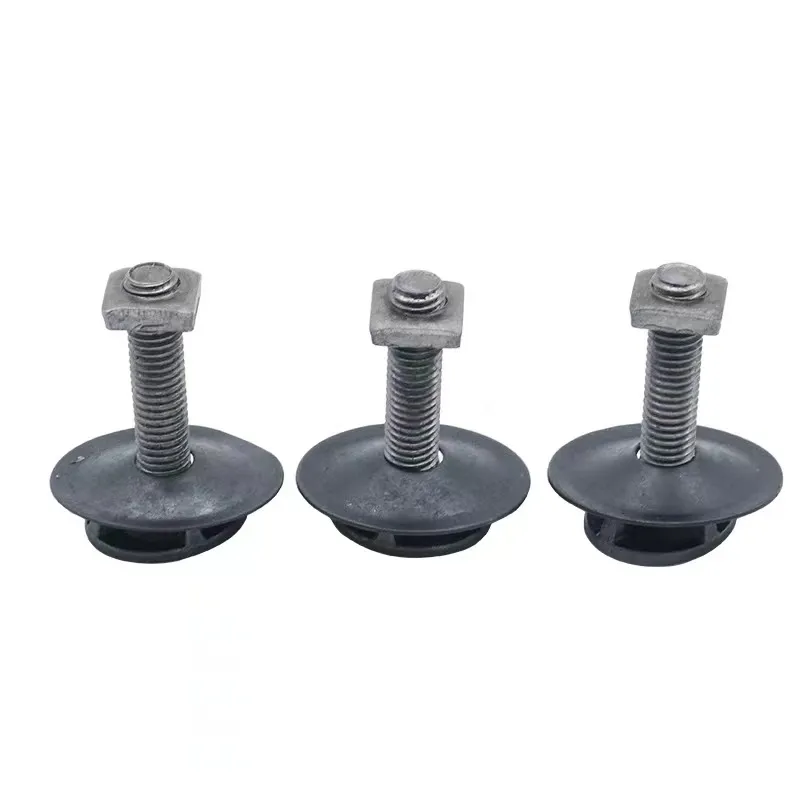

Stud Bolts and Machine Bolts - Reliable Fasteners for Your Projects
Eyl . 04, 2024 22:51 Back to list
Stud Bolts and Machine Bolts - Reliable Fasteners for Your Projects
Stud Bolts and Machine Bolts An Overview of Fasteners
Fasteners are critical components in various industries, playing a pivotal role in the assembly and stability of numerous structures and machines. Among the myriad of fasteners available, stud bolts and machine bolts are particularly prominent due to their strength, versatility, and ease of use.
Stud Bolts
Stud bolts are mechanical fasteners that consist of a long rod with threads on both ends. They are commonly used in heavy-duty applications, including piping systems, structural connections, and flanged connections. One of the primary attributes of stud bolts is their ability to provide high tensile strength, making them ideal for securing high-pressure systems.
The design of a stud bolt allows for the use of two nuts, with one nut fastened on each end of the bolt. This feature offers several advantages it allows for better load distribution across the connected parts, facilitates easier installation and removal, and ensures a secure hold even under extreme conditions. Additionally, stud bolts are often made from durable materials such as carbon steel, stainless steel, or alloy steel, enhancing their resistance to corrosion and wear.
Stud bolts can come in various grades and specifications, allowing engineers and designers to choose the appropriate fastener for their specific application. For example, in applications requiring exceptional strength and resistance to high temperatures, one might select a stud bolt made from high-strength alloy steel. On the other hand, for less demanding environments, standard carbon or stainless steel may suffice.
stud bolt and machine bolt - fastener

Machine Bolts
Machine bolts, often referred to as hex bolts or regular bolts, are another common type of fastener used in numerous applications. These bolts feature a hexagonal head, allowing for easy installation and tightening with a wrench. Unlike stud bolts, machine bolts typically have a flat or chamfered end and are used primarily with a nut or by threading into a pre-tapped hole.
Machine bolts are versatile fasteners that can be found in various applications, such as machinery assembly, construction, automotive, and furniture manufacturing. They come in various sizes, materials, and grades, enabling a wide range of load-bearing capacities. The distinct feature of machine bolts is their ability to create a strong, rigid connection when tightened properly, making them reliable for holding components together under various conditions.
Comparison and Applications
While both stud bolts and machine bolts serve the fundamental purpose of fastening parts together, they differ significantly in design, application, and installation. Stud bolts are more suited for high-pressure and high-temperature applications where a secure hold is essential. In contrast, machine bolts are typically preferred for general-purpose fastening tasks, especially where ease of access is a factor.
In conclusion, the choice between stud bolts and machine bolts ultimately depends on the specific requirements of the application in question. Whether one is dealing with heavy industrial systems or simple assemblies, understanding the distinctions between these two types of fasteners is critical for achieving optimal performance and safety in any engineering project. Proper selection, installation, and maintenance of these fasteners can lead to enhanced reliability and durability of structures and machinery alike.
Latest news
-
Hot Dip Galvanized Bolts-About LongZe|High Strength, Corrosion Resistance
NewsJul.30,2025
-
High-Strength Hot Dip Galvanized Bolts - Hebei Longze | Corrosion Resistance, Customization
NewsJul.30,2025
-
Hot Dip Galvanized Bolts-Hebei Longze|Corrosion Resistance&High Strength
NewsJul.30,2025
-
High-Strength Hot-Dip Galvanized Bolts-Hebei Longze|Corrosion Resistance&High Strength
NewsJul.30,2025
-
Hot Dip Galvanized Bolts-Hebei Longze|Corrosion Resistance&High Strength
NewsJul.30,2025
-
Hot Dip Galvanized Bolts - Hebei Longze | Corrosion Resistance, High Strength
NewsJul.30,2025

